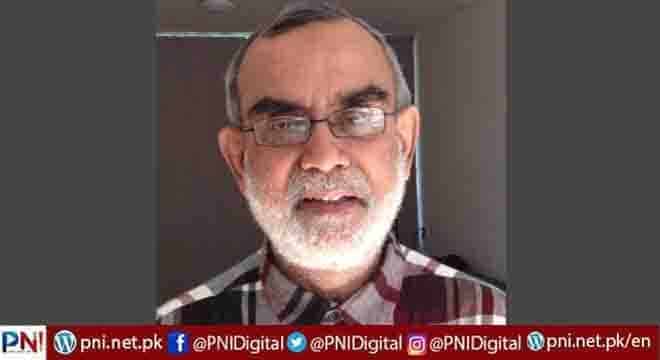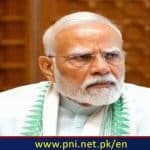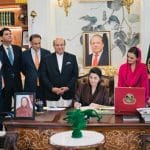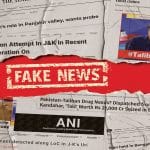Pakistan needs to heal its wounds caused by a deep political divide that has assumed a toxic character. The values that we have inherited emphasize starting from a common ground to deal with the differences. In the present political battle between the government and opposition demonizing the ‘other’ is mistakenly equated with the strength of character. It is important in this context to revisit popular beliefs on character, leadership, and strategy. Clarity of thinking can furnish us with a common ground to have a healthy and democratic dialogue to create together a just world.
Let us contemplate on the word character. Hazrat Ali’s advice to a Muslim on preaching Islam can be considered the final word on what constitutes character. It is narrated that a man came to Hazrat Ali to seek his advice on preaching Islam during his visit to a foreign land. Hazrat Ali advised him that ‘you should preach Islam in such a way that you don’t utter a single word to convey the message’ Hazrat Ali meant that your conduct should be the witness to the teachings that you want to convey. It is the conduct not the claims of a political leader that count in public life. Strength of character should also not be equated with arrogance, inflexibility, stubbornness, and self praise. Our Prophet used to regularly consult his companion and Quran has clearly directed the believers to consult among themselves. During the War of Trench, our beloved prophet dug a trench around Medina on the advice of Salman Farsi. He similarly consulted his companion on numerous occasions. This practice teaches us to be humble. In my view, humility and knowledge of self limitations is an important part of character. Only a leader who is humble and flexible can excel in his job. Arrogance is a trap laid by the ego and must be avoided.
Only a person with humility can provide meaningful leadership. Leadership first and foremost consists in having a good assessment of people around you and picking the people for your team who know what you don’t know. Moghul emperor Akbar who is known as Moghul e Azam provides an excellent example of this trait of leadership. He had very little formal education, but he picked the brightest stars in different fields of knowledge to advise him. He knew that he did not and could not know everything. He was lucky that he was not surrounded by a herd of sycophants and discovered the people with the relevant knowledge to assist him. In Pakistan sycophancy has become an art form and members of this class have mastered the art of taking hostage any politicians with the self image of a Great Leader. The mastery of our sycophant class consists in trapping the political leaders in the name of truth, righteousness, and national interest. Anyone who carries the burden of self-righteousness cannot escape their attempt to hijack the highest office in Pakistan.
Character and leadership cannot produce results without a strategy to introduce policy changes. No political party in Pakistan has a well thought out strategy to lead Pakistan out of the nonperforming debt based economic system. There are two types of strategies followed by statesmen in fighting political and military battles. First is the strategy proposed by the Chinese wise man Sun Tzu thousands of years ago in his treatise Strategy of Warfare. It is even now taught at the leading business school in the world. Sun Tzu said that if you know yourself and know your enemy you can win a battle without fighting. The second strategy of statecraft was described by the Italian intellectual Niccolo Machiavelli in The Prince in 1513. The crux of Machiavelli’s argument was that ends justify the means. Machiavelli distilled his knowledge of the world of power by articulating this view. He pointed out the ruthlessness of the power seeking mem who do not make any distinction between fair and unfair means. Politicians following this path are called Machiavellian. A leader who knows what he does not know, would follow in the footsteps of Sun Tzu and gather knowledge to conquer ignorance. A leader who considers grabbing power the greatest virtue falls back on the Machiavellian strategy of ends justifying the means. Such leaders get surrounded by the desperate crooks at the moment of their defeat and decide to depend on outright lies to stick to power. Considering power, not knowledge the supreme virtue takes leaders, parties, and movements to a dead end. Knowledge is our lost treasure we need to rediscover it. It is with knowledge, cooperation, and trust building that we can take Pakistan out of dire straits. We are in need of a healer.
Follow the PNI Facebook page for the latest news and updates.









